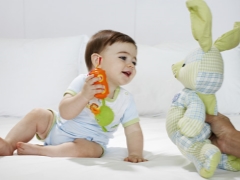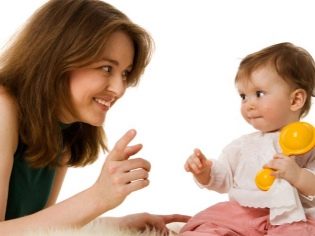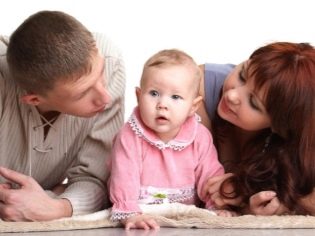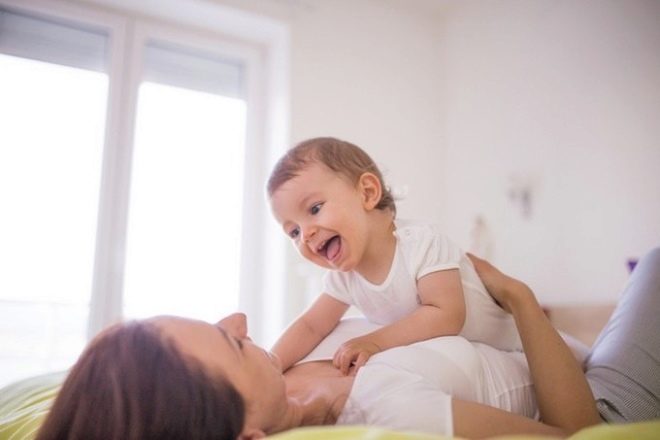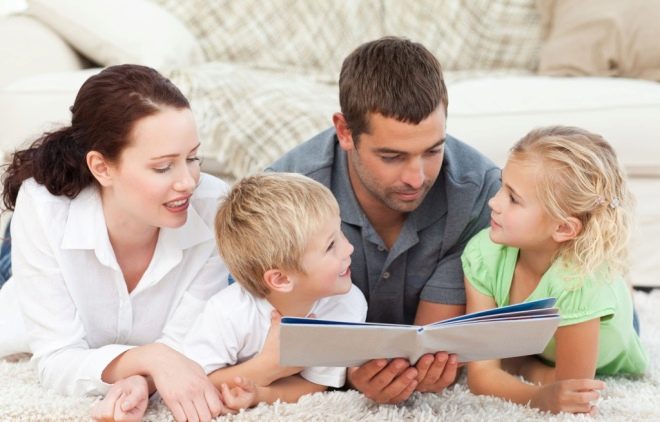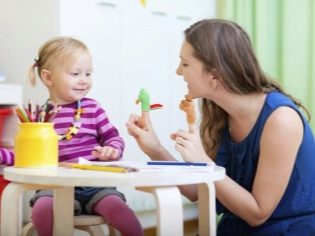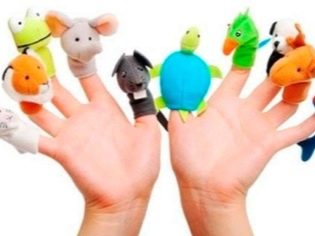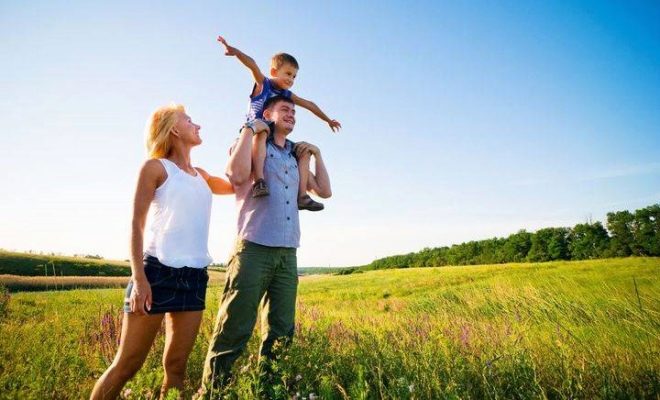Learning to say: how to develop children's speech
The first word of the baby is an event that parents have been waiting for almost since its birth. And after the child first adds the sounds to a conscious word, the period of formation of his active speech begins. After a year, children usually try to repeat the words after adults, learning to pronounce them.
Hurry the development of speech skills is not worth it - let everything happen in a comfortable rhythm for the crumbs. But it will not be superfluous to follow the progress of this process, to think about how one or other games influence the child’s ability to speak and his vocabulary.
Where to start?
Often, parents intuitively do exactly what they need - for example, “lisp” with babies. Recently, scientists from Edinburgh have shown that children, with whom adults often speak “their language,” develop speech better. The researchers found a connection between the baby's vocabulary at the age of a year or two and how much his parents used diminutive words (such as “machine”, “tummy”, etc.). The more “lisping” - the richer the lexicon is in the future!
The period from one to three years is very important for the formation of the child’s speech, even though at this time he can speak his own, as if fictional language. The kid understands what adults say to him, but he responds with words that sound completely different. At this time, he tries to learn the language, "tastes it" and begins to understand how this tool works. And parents need only a little help in this difficult process. It is useful here what is called the "language of nannies." Do not neglect expressions like “machine bi-bi” or “train chukh-chukh”. They are important for the pussy to realize: parents understand what he is saying.
At the same time, it is necessary to maintain a balance: it is not necessary to completely switch to the “children’s” language If the kid says “Bibika” instead of “typewriter” - you don’t need to correct him, but you don’t have to say it yourself either.
Parenthood
In general, the more you chat with and with your child, the better. After all, parental behavior is a standard for children, including those who are not yet speaking. Constantly tell the baby what you are doing or what you will do when you go for a walk, talk about how your day went, and ask questions. Even if the baby does not answer you, he still understands you and, perhaps, even in his own way reacts to your monologue “in mind”. Slowly pronounce complex words and use them more often in speech.
The main thing - do not reduce communication to one order like "remove toys" and "eat porridge."
On the other hand, sometimes too excessive talkativeness of parents can become an obstacle to the development of speech. If you constantly anticipate the wishes of the baby, asking questions that can be answered with a nod of his head, he simply has no incentive to start talking. So it is important to push the child to the discussion. Instead of insisting “say the ball,” ask: “what's in my hands?” Or “what did you play with dad today?”. Tricks like bribery and blackmail or a frank incentive tone will hardly help the child to speak at once. To propose a toy for the word "mom" or to insist on the same thing is an ineffective tactic.
Pay attention to the formation of speech is important in the process of games. How soon the baby learns to express their thoughts out loud is influenced by many factors - including the development of the movements of the fingers and fine motor skills. Teach your child to untie and tie shoelaces, sort through the rump with him, play the "finger theater" and, of course, play constructors.All this indirectly helps him learn to talk.
Game example
Combine the assembly of designers with role-playing games that no longer indirectly, but directly affect the development of speech.
Make up stories and help the child do the same. To make the process easier, use familiar and favorite characters.
For example, with babies from two years old it will be fun to invent new adventures for Minnie Mouse using the set Lego® DUPLO® "Birthday of Minnie" (art. 10873). Imagine how the heroine prepares for a party in honor of her holiday and which friends she is going to invite. Plant it in a typewriter and ask the crumbs - where is Minnie heading? Maybe she needs to buy a cake? Or does she just want to ride her cat in the breeze?
Answering your questions, the child will come up with a plot. In this he will be helped by the scenery and minifigurki from the set.
Over time, he will learn to compose whole fairy tales and describe in detail the scenes - and this is useful not only for expanding vocabulary, but also for the formation of figurative thinking and the development of imagination.
